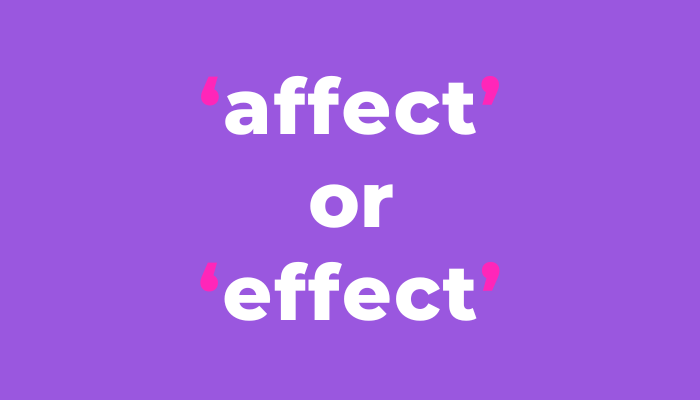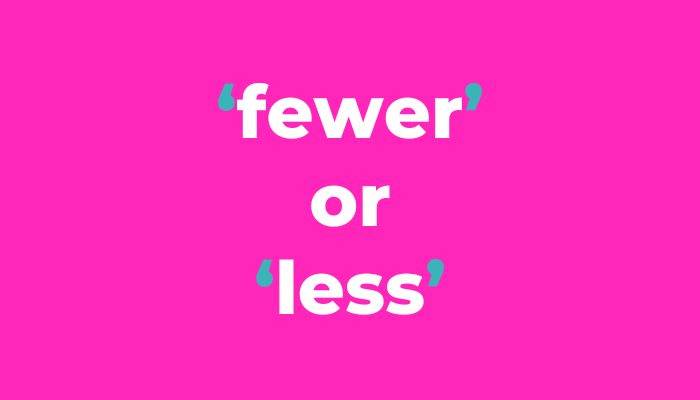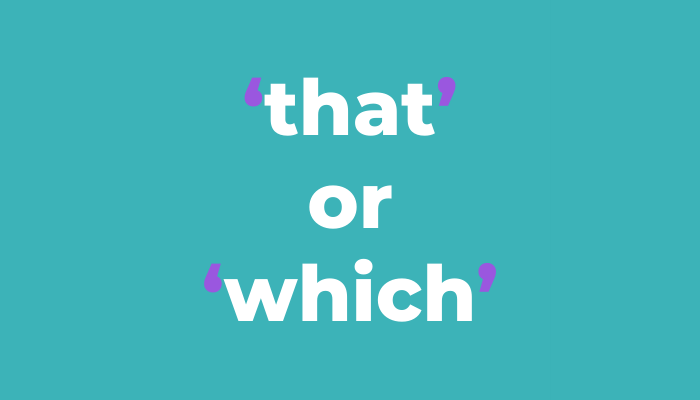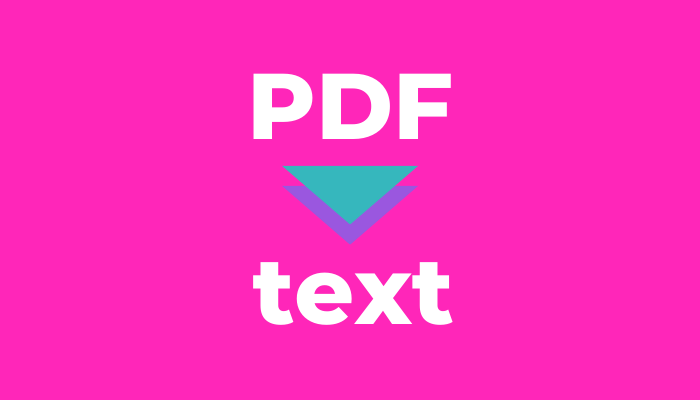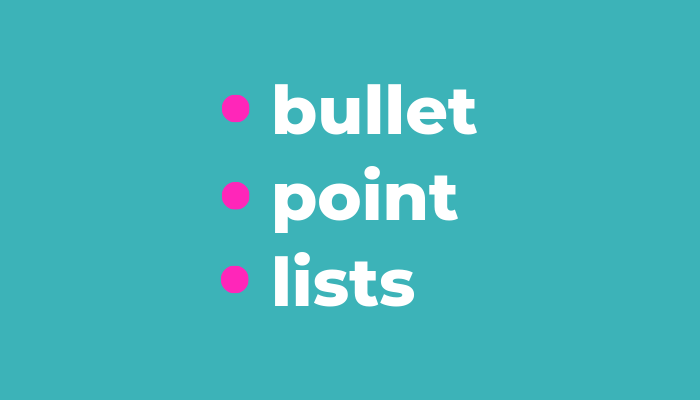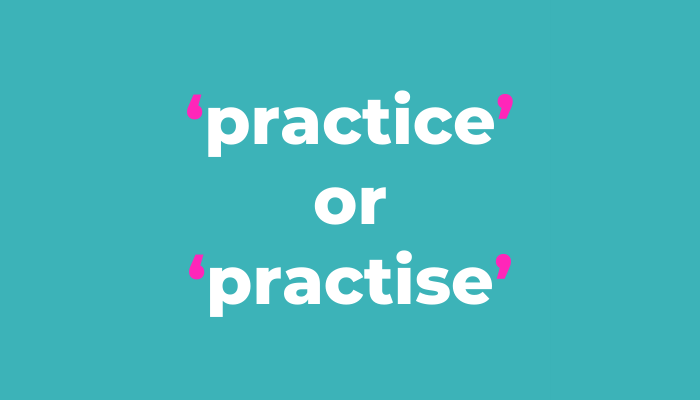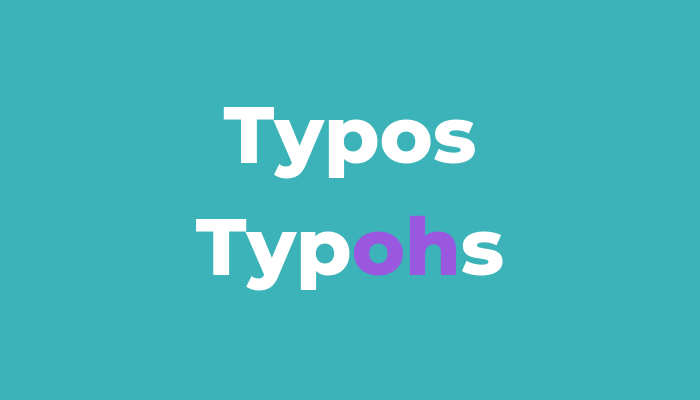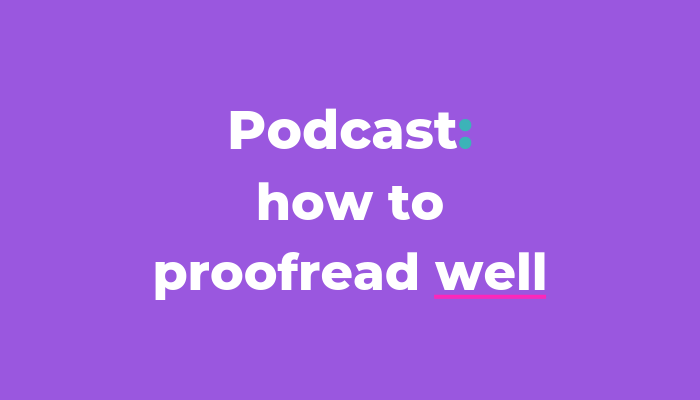Will your marketing copy be perfect?
Proofreaders are all about perfection. That’s our happy place.
But can I guarantee that the marketing campaign copy you’ve had proofread will be perfect? No. Because that’d be fibbing.
Some will say they offer proofreading perfection. But that’s not me. To label it as ‘perfect’ is misleading and I want to be honest with you. Because I like you.
But this isn’t about just being decent. It’s about expectations. And you’ll find six of them to keep in mind later on.
Here’s why it gets sticky…
Perfection is subjective.
If you told me the perfect breakfast is a fry up, I’d gag. It’s a breakfast burrito! Well, it’s more a brunch thing but that’s just getting pedantic. And I’m not into pedantry either.
Your perfect is not my perfect.
Reading and reality
Maybe you’re a copywriter or client account manager and you need your client’s copy signed off.
You give your work to a few different proofreaders. To proofread. But what exactly does their proofreading cover?
One might be a little more involved, so down a light editing route. Another might not cover as much as you’d hoped or go too far and critique your messaging. They probably all pick up the same spelling mistakes. Not necessarily the grammar though. And are they even grammatical ‘mistakes’ or are they your stylistic choices?
This is where perfection gets messy. Like that burrito that dripped down your t-shirt. No one wants a drippy burrito.
Them’s the rules though, right?
There are rules of grammar so language makes sense. To be sure we’re actually communicating what we intend to communicate. We need those rules.
Then there are ‘the rules’ of grammar. They exist. But they don’t really. And some people will troll the hell out of you for not following them. Like starting sentences with ‘and’. But we don’t need those rules for our words to convey the meaning we actually mean.
I love rules. I love to break ‘the rules’ too. The same way you do when you’re crafting your marketing message.
Back to that bunch of proofreaders then.
One of them may be a grammar hammer. They stick to those rules. They’re hellbent on correcting the split infinitives in your copy.
Another may not flag them. They come from a more human angle of communication. Where being prescriptive isn’t as important as making sure the right message is conveyed clearly.
The third may flag it as something to consider. Perhaps that infinitive is split in one sentence but not in the one that follows. Continuity is a biggie for them.
Does it even matter whether you know what a split infinitive is? Nope. Because the proofreader will flag it if it affects the meaning.
So if each proofreader returns your copy with different results… which one is ‘perfect’?
They all are. According to themselves. Because they’re working to their own high standards.
Perfection percentage
The Chartered Institute of Editing and Proofreading doesn’t guarantee perfection. They expect an experienced proofreader that’s worked on already copy-edited text to find and appropriately deal with at least 80% of overall errors. That goes up to 90% for just the typos.
Why are some proofreaders offering perfection then? Maybe they think that’s what you want to hear. Or maybe they believe it’ll be perfect because that’s what they’re working towards for you.
I don’t think they’re diddling you over. They really strive for that 100%. But I do think we need to manage expectations.
The proof is in the… burrito
My perfect breakfast burrito needs to be spicy. You promise me some swoon-worthy spicy brekkie perfection. I shovel it in. And it’s not spicy. I’ll still eat it all, mind.
You achieved 100% perfect spiced-up breakfastry. For you.
But it didn’t meet 100% perfect guzzle-it-down-and-feel-that-burn spice sensation. For me.
You added the same ingredients I normally have. But maybe there wasn’t enough sriracha sauce. Maybe the chilli flakes in the tomato mush weren’t the usual level 3 hot hot hotness. Maybe that dollop of spicy sriracha mayo was a splodge on the smaller side.
You can include all the right ingredients. But it’s still not perfect. Because taste is subjective.
We can proofread for all the same elements of your copy. But it’s still not perfect. Because some elements of grammar and punctuation are subjective.
On the table
How can we get your copy as tip-top as possible? We need to work together. There are a few things to consider when you book a proofreader so you know what to expect. And why.
If we both know what’s what then we’ll both be chuffed with the final copy.
Do you actually need proofreading?
Proofreading. Proof-editing. Copy-editing. Developmental editing. Line editing. All the editings.
Some of those might mean the same thing to some of us proofreaders. It’s best to think of it as a sliding scale of how in-depth we go.
If it’s not clear what someone’s proofreading service includes, just ask. You want to be sure you know what they’re looking for.
Expectation #1 Your proofreader should ask for a sample. If you ask for proofreading but it looks like it does need more, they might suggest it’s edited. And that’s up to you. It’s your copy and your budget. It’s not an upsell. They really do want to give you the best version of your copy that they can.
What’s your budget?
I ask for a sample of your copy then quote a set fee. So what are you paying for? Time. Skills. Experience. Expertise. Value. To not have people judge you based on a tiny little slip that everyone involved in the campaign overlooked because they couldn’t see it clearly anymore.
Here’s a brief look… I work through it stage by stage. I have macros set up to check for specific issues. There are wildcards to search for. I run it through software. I work through individual elements of the text following a process I’ve refined over the last 15 years. I leave it alone for a bit. Burrito break. I read it through in full. Other methodical stuff.
I know I’ve done everything I need to do to be completely happy with it. And your proofed copy will most likely be exactly what you were expecting. Yay to that!
But proofreading takes time. And you need to pay for that time to get that level of detail.
Factor the budget in at the start of the project or campaign. Factor it in when your client asks you for an initial quote so you don’t take the hit.
Don’t have the budget but don’t want to risk sending your copy out without a thorough proofread either?
If you need to keep it in house, the Proofreading for Marketing ebook leads you through the 5-step system I use when proofreading my clients’ projects. You’ll deliver client-ready copy without sweating the small stuff. (Or quaffing too much caffeine – unless you love the buzz. Breakfast burritos AND coffee? YES!)
Expectation #2 If your copy needs editing but you can only budget for proofreading, expect to receive copy that’s been proofed. Not edited. The structure and overall message will stay the same.
What’s the deadline?
Timescales have an impact. Sometimes you have a deadline to meet. And that proofreading needs to be turned around quickly.
It’s not simply a case of reading it all through once though. Start to finish. Really slowly. Anyone can do that if they have the time and focus. And it won’t catch everything because our brain likes to make things easy for us. It’s that being human thing - damn it.
I have a specific process. It’s the most efficient way to be sure I’ve checked everything. I can’t rush that. Well, I can. But…
Expectation #3 Be mindful that a speedy turnaround could mean I’ll have to leave out or skim over some parts of my process to meet your deadline. I might want to give it the full attention it ideally needs, but I haven’t been given that time.
If you’re proofreading in house, grab a copy of Proof or Dare. It guides you through the most important elements in your copy, so you know where to focus when time is tight.
Have you got a style guide?
You have? You rule. Send it my way!
If I have your style guide or brand guidelines, I can make better decisions. Quicker decisions. The less I’ll need to query. The less stylistic choices I’ll need to compile for you so you can use them in your future copy.
For some projects, I may need to send you a batch of queries whilst I’m still proofreading the copy. And I need time to make those changes once I hear back.
Expectation #4 If I’ve sent you queries, I need them answered in good time. Not near the deadline. I don’t want to be waiting with knots in my stomach to then have to rush the edits. Rushing is risky. Errors could slip through. I don’t like risky. Or those knots.
Have you set aside time?
It’s your copy. It’s your decision how to move forwards with the proofed version.
You’d be daft not to change the typos and design inconsistencies. But some of the grammar and punctuation, or elements of style? I need to know I’ve flagged everything I can. So you can decide what to action. And what that action will be.
You’ve trusted me to make those amends. You could accept all the tracked changes if you want. Or send the PDF straight off to the designer. But proofreading ideally needs your input too.
Expectation #5 If you factor in the time to work through the returned copy and queries, you’ll have more control over those stylistic choices. To decide whether something does need correcting or whether it was meant to be that way.
You might add things to your style guide too. You might have a better idea of what you need to do for your next copy project. And you’ll send me your updated guide, yeah?
Is the proofreader right for your copy?
The same way that I ask for a sample of your copy so I know what I’m working with, you need to know who you’re trusting with your copy too. Think about the kind of proofreader you’re after. Because we’re not all the same…
If you take a squizz at this website, read these blogs or follow my LinkedIn profile, you’ll get an idea of me, my vibe and my approach to proofreading. I’ve got my writing style. The same way you’ve got yours.
I’m not that red-pen-wielding pedant who’s all about the rules. I’m all about copy that hits the spot. I trust that you know your audience. Your message. And your copy. You trust that I can tell a stylistic decision from a mistake. My heart sinks when people poke about with carefully crafted copy because of ‘the rules’.
I’m not going to riddle your copy with amends just because someone once said we should do something some time ago. This is B2B marketing. We’re not talking academic writing or school textbooks. You want a clear and accurate message. One that delivers.
Some proofreaders work on all copy across all areas. Some within publishing. Some only fiction. Take a look at their testimonials to see if they’ve worked with similar businesses. And on similar projects.
I mainly work with marketing and creative agencies on B2B and B2C copy. I love getting my eyeballs all over a PDF. It’s not just the copy, you see. It’s making sure all the design elements are accurate and consistent too. You want the design to complement the copy so it isn’t an other distraction or barrier to business. There’s something about having to be that methodical.
Proofreaders don’t need a degree in English or to have taken a course. Handy if they have though. (Mine? BSc Speech and Language Science and proofreading for non-publishers at The Proofreading Training Centre). You need to know they have experience in doing exactly what you need them to do.
If they have other experience that’s the right fit for you, even better. I’ve run the office of a couple of marketing agencies so I understand the demands of your world.
Consider their writing too. You’re not looking for another copywriter. But you do want to know that they can actually write. That their linguistic skills measure up and meet the standards you’d expect.
Websites offering proofreading with poorly written copy exist. I’ve seen them. It’s not cool.
And the same way that writer’s have their own writing style but write to suit their client’s copy, I have my own writing style but proofread to suit my clients’ copy. I start sentences with ‘and’. And I do it a fair bit. But I’m not going to change your copy to suit my way of writing. I’ll make an informed decision about the amends I suggest.
If I’m not the proofreader you’re after, that’s all dandy. You need to feel good about the person you’re handing your copy over to. Trust your instincts.
Expectation #6 Pick the proofreader that feels the best fit for your copy. Not just for you. You could ask a B2B marketing proofreader to copy-edit your first fiction manuscript following the rise and romps of Dolores De Witt as she makes her way through the East London backstreets to music-hall bawdiness. They may do a damn fine job of it. But there’ll be someone who knows the ins and outs (ooer) of copy-editing raunchy historical fiction. Someone who can give you feedback on the overall plot, structure and characterisation. And that person isn’t me.
If I suggest you use another proofreader or editor because I don’t feel like I’m the right fit for your copy, I’m suggesting the best option for your copy.
Not perfect? That’s normal.
So… will your copy be perfect after I’ve proofread it? I have to say no.
What it will be is as damn well close to that 100% as it possibly can be. What you’ll get will be MY ‘perfect’. Given everything I’ve been given the chance to do. With the budget available. In the timescale I’ve been given to do it.
I work so that I’m chuffed with your copy. So you’re chuffed with your copy too. If there are ever any oversights, know that I’ve worked my hardest to catch them all. Like Pokémon. Tiny tiny tiny Pokémon. I want and aim for it to be perfect. Even if I can’t say it will be.
I’ll be sprinkling my burrito with chilli flakes. But I won’t be sprinkling your copy with commas. Unless you actually need them.



